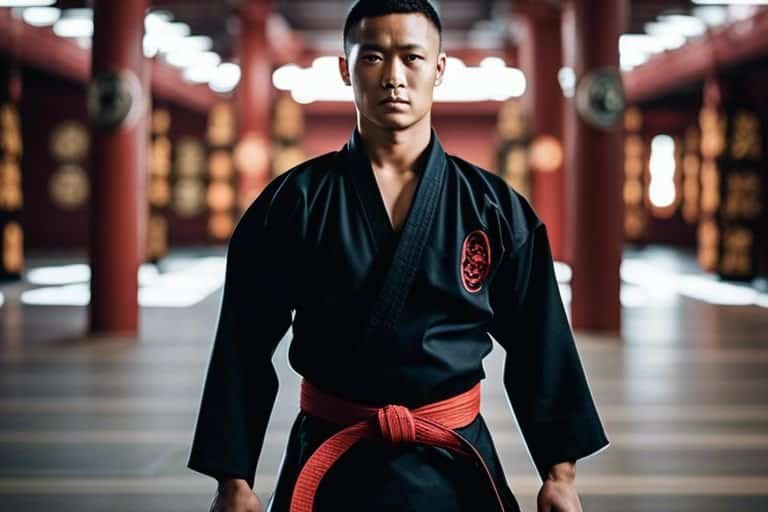Delving into the world of martial arts is a journey that demands dedication, discipline, and perseverance. Earning a black belt in martial arts is a significant achievement that represents mastery and expertise in a particular discipline. It is a symbol of dedication, hard work, and commitment to the art form, and it holds great significance in the martial arts community. The journey to black belt is a rigorous one, requiring mental strength, physical prowess, and unwavering determination. It signifies not only a high level of skill in self-defense techniques but also a deep understanding of the principles and philosophies that underpin the art. The level of proficiency attained by a black belt is impressive and demands respect from peers in the martial arts community.
Key Takeaways:
- Prestige and accomplishment: Acquiring a black belt in martial arts signifies years of dedication, discipline, and hard work, which brings a sense of prestige and accomplishment to the practitioner.
- Mastery and expertise: A black belt represents a high level of proficiency and mastery in martial arts techniques, demonstrating expertise in both physical and mental aspects of the discipline.
- Leadership and mentorship: Black belts often serve as role models and mentors within the martial arts community, inspiring and guiding others on their own journey towards mastery.
History and Tradition
Now, let’s delve into the rich history and tradition surrounding the black belt in martial arts. The black belt is not just a symbol of mastery, but it also carries a deep significance rooted in the traditions of various martial arts disciplines.
Origins of the Black Belt
Traditionally, the black belt was used in the Japanese martial art of Judo to signify a practitioner who had developed proficiency in the art. Over time, the concept of the black belt was adopted by other martial arts, such as Karate and Taekwondo, each imbuing it with its own unique traditions and values. The black belt became a visible representation of not only a practitioner’s skill level, but also their dedication, discipline, and commitment to the art.
Evolution in Different Martial Arts Styles
An interesting aspect of the black belt is its evolution within different martial arts styles. While the black belt originally symbolized proficiency and expertise, it has evolved to hold different meanings across various disciplines. In some arts, achieving a black belt signifies the end of basic training and the beginning of deeper, more focused learning. In others, it represents a commitment to teaching and passing on the art to future generations.
For instance, in Brazilian Jiu-Jitsu, the black belt not only represents technical skill, but also a profound understanding of strategy and an ability to remain calm and focused under pressure, making it one of the most coveted ranks in the art.

The Journey to Black Belt
Some individuals embark on the journey to acquire a black belt in martial arts with the intention of mastering self-defense techniques, while others seek the mental and physical discipline it demands. Regardless of the initial motivation, the path to obtaining a black belt is a transformative experience that requires unwavering commitment and resilience.
Training and Dedication Required
Journey to the black belt begins with a strong emphasis on training and dedication. It requires consistent practice and discipline, as well as a willingness to push past physical and mental limitations. The road to black belt is long and arduous, demanding countless hours of rigorous training, focus, and dedication.
Challenges and Milestones
Any individual pursuing a black belt will encounter numerous challenges and milestones along the way. These may include mastering complex techniques, enduring physical and mental fatigue, overcoming injuries, and facing tough opponents in sparring sessions. Additionally, there are formal evaluations and tests, such as belt exams, that serve as crucial milestones in the journey toward the black belt.
Plus, the journey to a black belt often involves persevering through moments of self-doubt, fear, and frustration. It requires mental fortitude, courage, and a never-give-up attitude to navigate through these challenges and emerge stronger on the other side.
Symbolism and Significance
For centuries, the acquisition of a black belt in martial arts has carried profound symbolism and significance. It is not just a symbol of accomplishment, but a badge of honor that represents dedication, perseverance, and mastery of the art form.
Recognition of Mastery and Skill
On the journey to acquiring a black belt, martial artists undergo rigorous training and discipline. The attainment of this esteemed rank symbolizes their unwavering dedication, exceptional skill, and mastery of the art. It is a recognition of their deep understanding of the techniques, principles, and philosophy of the martial art they have devoted themselves to.
Cultural and Personal Symbolism
Any individual who attains a black belt enters into a prestigious realm within the martial arts community. Beyond the physical prowess, the black belt signifies a transformational journey of personal growth and self-discovery. The significance goes beyond mere physical skill, as it embodies the values of discipline, respect, and perseverance that are deeply rooted in the cultural traditions of martial arts.
This distinguished rank holds personal significance for each practitioner, representing their commitment to continuous improvement, mental fortitude, and the indomitable spirit that defines a true martial artist.

Life Beyond the Black Belt
After achieving the prestigious black belt in martial arts, many practitioners wonder what comes next. The journey doesn’t end at black belt; in fact, it opens up a whole new chapter of growth and development in the martial arts.
Continuous Learning and Teaching
The journey to black belt is just the beginning of a lifelong pursuit of knowledge and mastery in martial arts. The black belt represents not only proficiency in techniques but also a commitment to continuous learning and improvement. Many black belts become instructors, passing on their knowledge to the next generation of martial artists. The role of a teacher is to guide and inspire students, continuously learning from their students’ progress and challenges. It is a fulfilling experience to see the growth of students under the guidance of a black belt instructor, and it also reinforces the black belt’s own understanding of the art.
Leadership and Responsibility in the Martial Arts Community
Leadership and responsibility are integral aspects of a black belt’s role in the martial arts community. Beyond being a skilled practitioner and instructor, the black belt is expected to demonstrate leadership by setting an example for others to follow. This includes fostering a positive and supportive training environment, promoting the values of respect and discipline, and ensuring the safety of all students. The black belt also carries the responsibility of upholding the traditions and ethics of the martial arts, serving as a mentor to lower-ranked students, and representing the art with dignity and integrity.
Teaching leadership and responsibility to students and being a role model for them are crucial aspects of the black belt‘s journey beyond acquiring the black belt.
To wrap up
Presently, the significance of acquiring a black belt in martial arts cannot be overstated. It represents years of dedication, discipline, and hard work. It demonstrates a mastery of the art form and a deep understanding of its principles. More than just a physical achievement, earning a black belt signifies mental and emotional growth, as well as a strong sense of respect for oneself and others. It serves as a testament to one’s perseverance and commitment to self-improvement. Overall, acquiring a black belt in martial arts holds great significance and is a milestone worthy of acknowledgement and celebration.
FAQ
Q: What is the significance of acquiring a black belt in martial arts?
A: Achieving a black belt in martial arts signifies a high level of skill, knowledge, and mastery in the discipline. It represents years of dedication, perseverance, and hard work, and demonstrates a deep understanding of the principles and techniques of the art.
Q: What does it take to earn a black belt in martial arts?
A: Earning a black belt requires a significant investment of time and effort. It involves rigorous training, regular practice, and the ability to demonstrate proficiency in various techniques, forms, and sparring. Additionally, students must embody the core values of martial arts, such as discipline, respect, and humility.
Q: What are the benefits of attaining a black belt in martial arts?
A: Acquiring a black belt brings a sense of accomplishment and pride. It also signifies improved physical fitness, mental discipline, and self-confidence. Black belt holders often become role models within their martial arts community and are entrusted with leadership responsibilities.
Q: How does achieving a black belt affect personal growth and development?
A: The journey to a black belt fosters personal growth by instilling traits such as perseverance, resilience, and the ability to set and achieve goals. It also promotes humility and a lifelong commitment to continuous improvement, leading to a well-rounded and balanced approach to life.
Q: What responsibilities come with being a black belt in martial arts?
A: Black belt holders are expected to uphold the values of the martial arts, serve as mentors to lower-ranked students, and contribute to the growth and advancement of their martial arts school or organization. They must lead by example and continue to deepen their understanding and expertise in the art.



